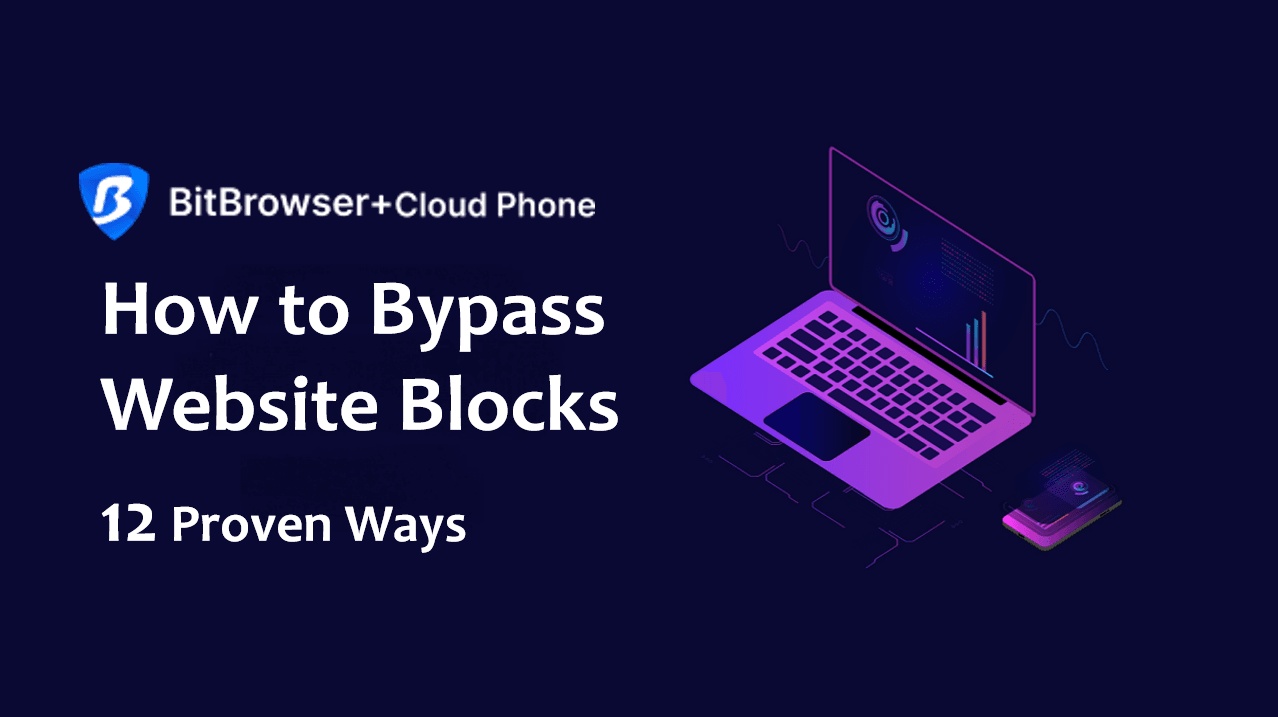

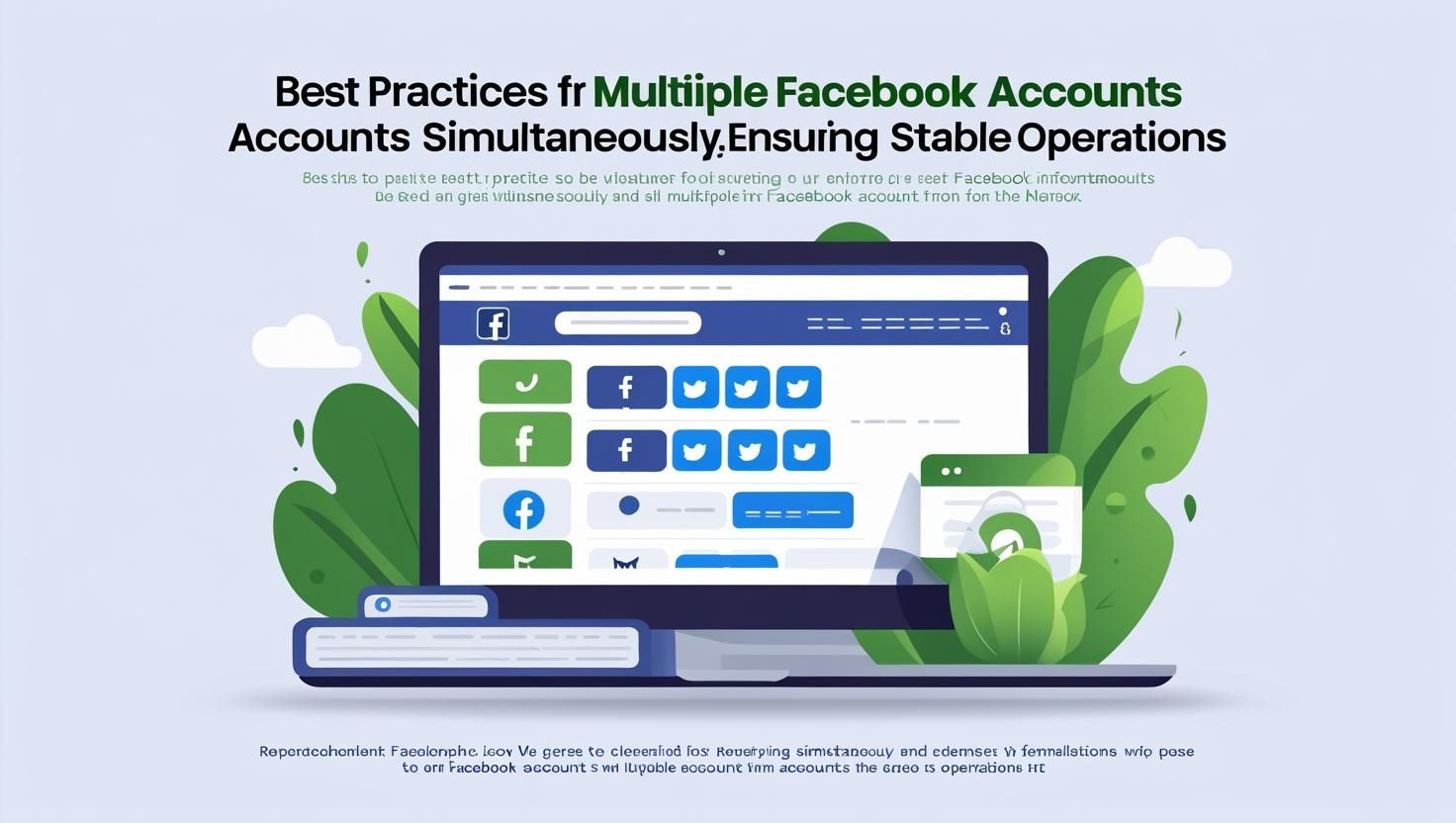
Proxylib.com: An outside look at free proxies – Can quality be found without cost?
 2025.07.22 19:03
2025.07.22 19:03In a world where high-quality proxy servers are typically associated with paid subscriptions, the emergence of services offering free proxies invariably sparks a healthy dose of skepticism. Can free lists be trusted? Will they even work? And, most importantly, won't such "savings" ultimately prove more costly? These were precisely the questions I had when I began exploring Proxylib.com, a resource that claims to provide free, yet meticulously verified and up-to-date anonymous proxies. My objective was to ascertain whether this project genuinely has the potential to break established stereotypes and offer something valuable without hidden catches.
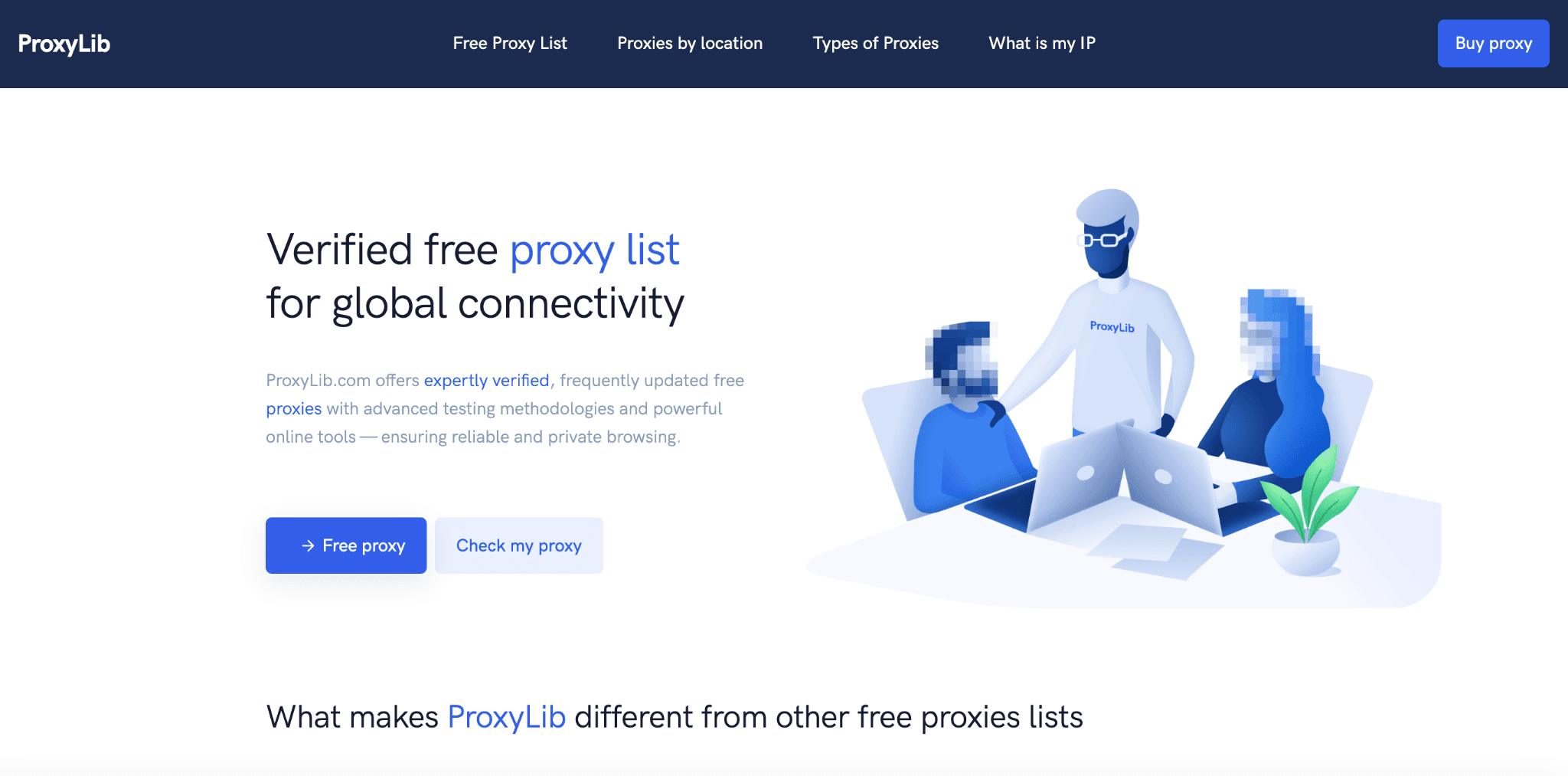
Upon my initial encounter with Proxylib.com, I was pleasantly surprised by the emphasis on transparency in their verification methodology. Unlike many similar sites that simply dump a list of IP addresses without any explanation, Proxylib.com provides a detailed breakdown of how the selection and testing processes are carried out. This immediately builds trust, as a service that doesn't conceal its operations is already halfway to success. It's clear that the Proxylib.com team isn't just randomly scraping the internet for proxies; they employ a systematic approach to filtering them.
Of course, free proxies inherently come with certain risks and limitations—that's a given. However, the fact that Proxylib.com not only claims but, judging by their description, implements a rigorous verification system, sets it apart from the general crowd. For users seeking low-cost or entirely free solutions for their tasks, be it bypassing geo-restrictions to view content or performing basic web scraping, such a resource could be a real find. After all, if even a portion of these proxies truly performs with the claimed quality, that's a significant advantage, eliminating the tedious manual sifting process.
Functional Analysis: What lies behind Proxylib.com's stated quality and a deep dive into Its verification
The primary highlight of Proxylib.com, immediately noticeable, is its automated testing system. According to their statements, every proxy in their database is checked every two hours using distributed servers located in 10 different countries. This is impressive, as such frequency and geographical diversity in testing should, in theory, ensure the list's high relevance. In an environment where free proxies tend to quickly fail or change their characteristics, such a monitoring system is critically important.
Particular attention is paid to eight key verification parameters, which is significantly more in-depth than most comparable free services. I was particularly interested in their approach to determining the anonymity level: classifying proxies as Elite, Anonymous, and Transparent. This is extremely beneficial for users, as it allows for precise proxy selection tailored to a specific task. For example, highly sensitive operations would clearly require an Elite proxy, while less critical tasks might suffice with an Anonymous one. I also want to specifically highlight the checking for support of various protocols (HTTP, HTTPS, SOCKS4, SOCKS5), which expands the applicability of proxies for different types of software and devices. And, of course, geolocation accuracy and speed measurement are parameters that directly impact the user experience. The stated geolocation error margin of no more than 20 km and the use of three independent databases for cross-referencing represent a serious approach, rarely seen even among some paid services. Furthermore, the rejection of slow proxies (with response times over 1500 ms) is direct evidence of their concern for users, as nothing is more frustrating than working with a "lagging" internet connection. All these details, articulated by the service itself, create the impression that the issue of quality has been approached with due diligence, not just by compiling publicly available data.
In a recent conversation with Roman Bulatov, CEO of Proxylib.com, I gained some technical insights that shed light on the effectiveness of their system. It turns out they've updated their verification mechanism to include support for explicit proxy type specification when adding to the checker. Now, if you input a proxy in the format socks5://1.1.1.1:1234, the system will test it exclusively as a SOCKS5 proxy, without wasting resources checking other protocols. This significantly accelerates the verification process and enhances data accuracy, especially when dealing with a large volume of proxies. If the classic 1.1.1.1:1234 format is used, the check will still proceed across all four protocols (HTTP, HTTPS, SOCKS4, SOCKS5), as before. These enhancements have also been integrated into their remote agent verification system, indicating a systematic approach to optimization.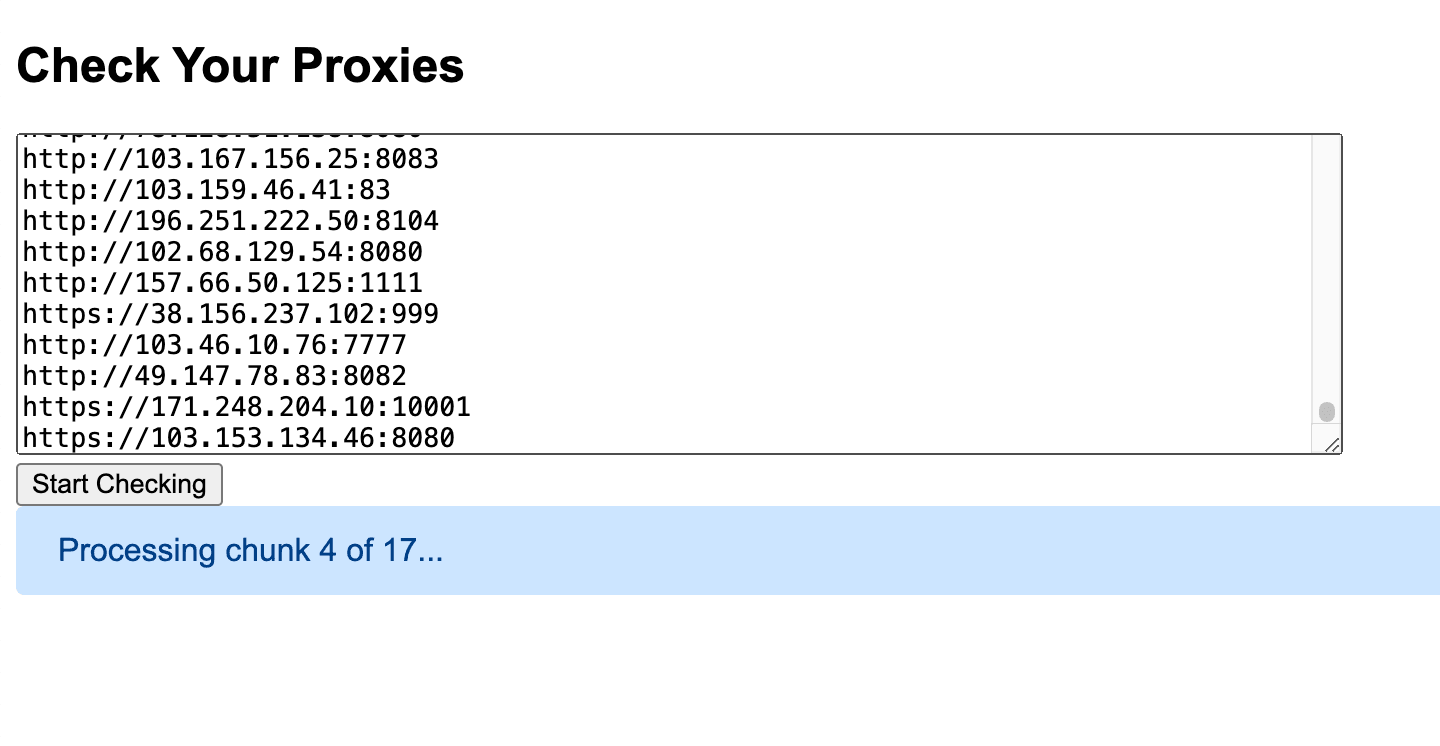
Furthermore, Roman Bulatov shared plans for further optimizing their proxy database: they intend to remove IP addresses that have never been online and to retain only working proxy types for each server. These steps are aimed at improving the performance of the proxy checker itself and ensuring even greater relevance of the proxies offered. Regarding the proxy submission form, it has also undergone changes: now, when submitting fewer than 50 entries at a time, you'll be redirected to a unique status page with its own hash. This means you can safely close the tab and return to the verification status whenever convenient. If the number of lines exceeds 50, the system automatically splits them into "chunks" of 50 and provides separate links to status pages for each batch, which is extremely convenient for large-scale operations.
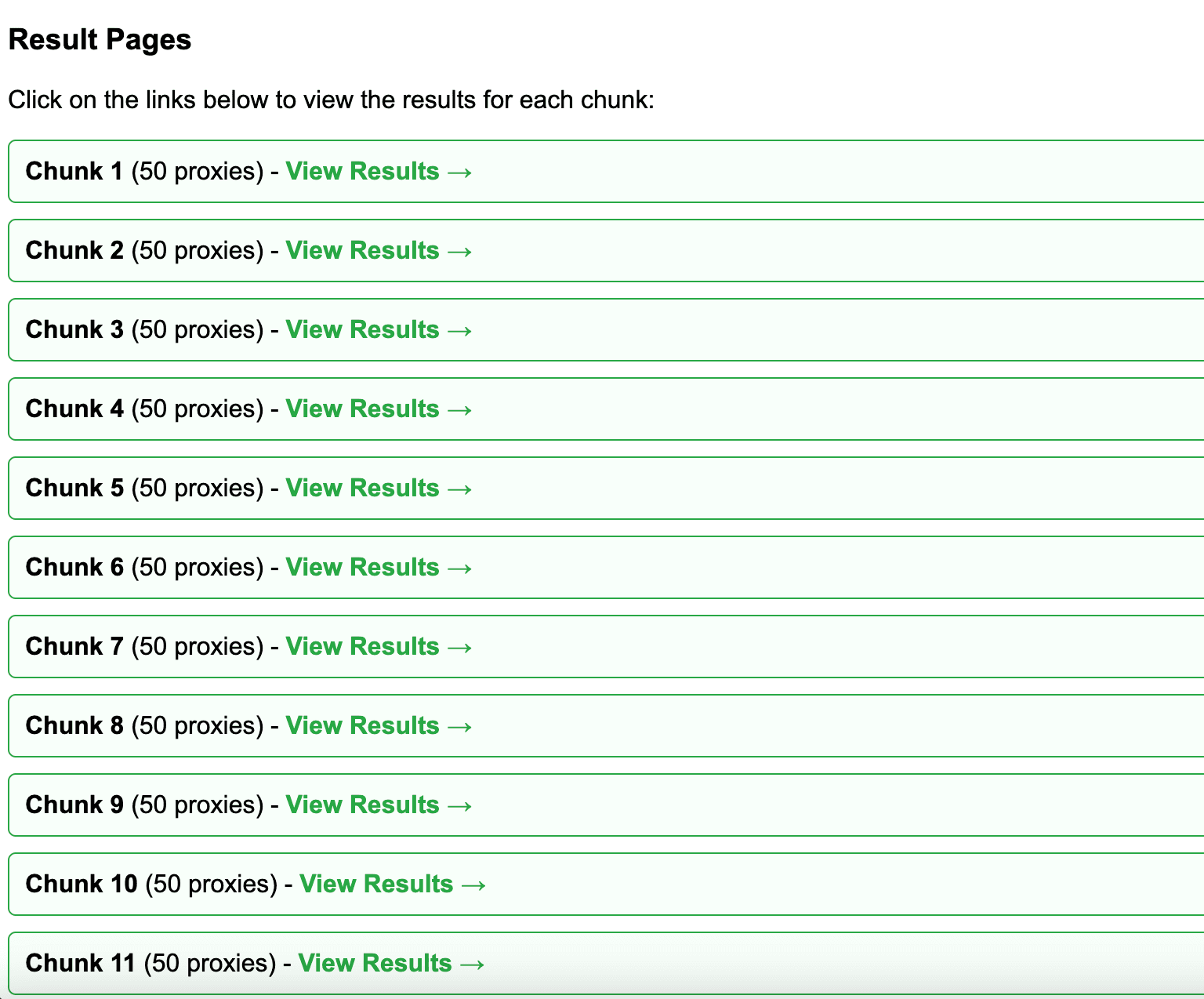
The entire power of this checker is scaled by a network of remote agents: any computer connected to the network can become such an agent, continuously requesting proxy verification tasks and performing the necessary queries. This decentralized architecture allows Proxylib.com to handle massive verification volumes, ensuring data timeliness and accuracy.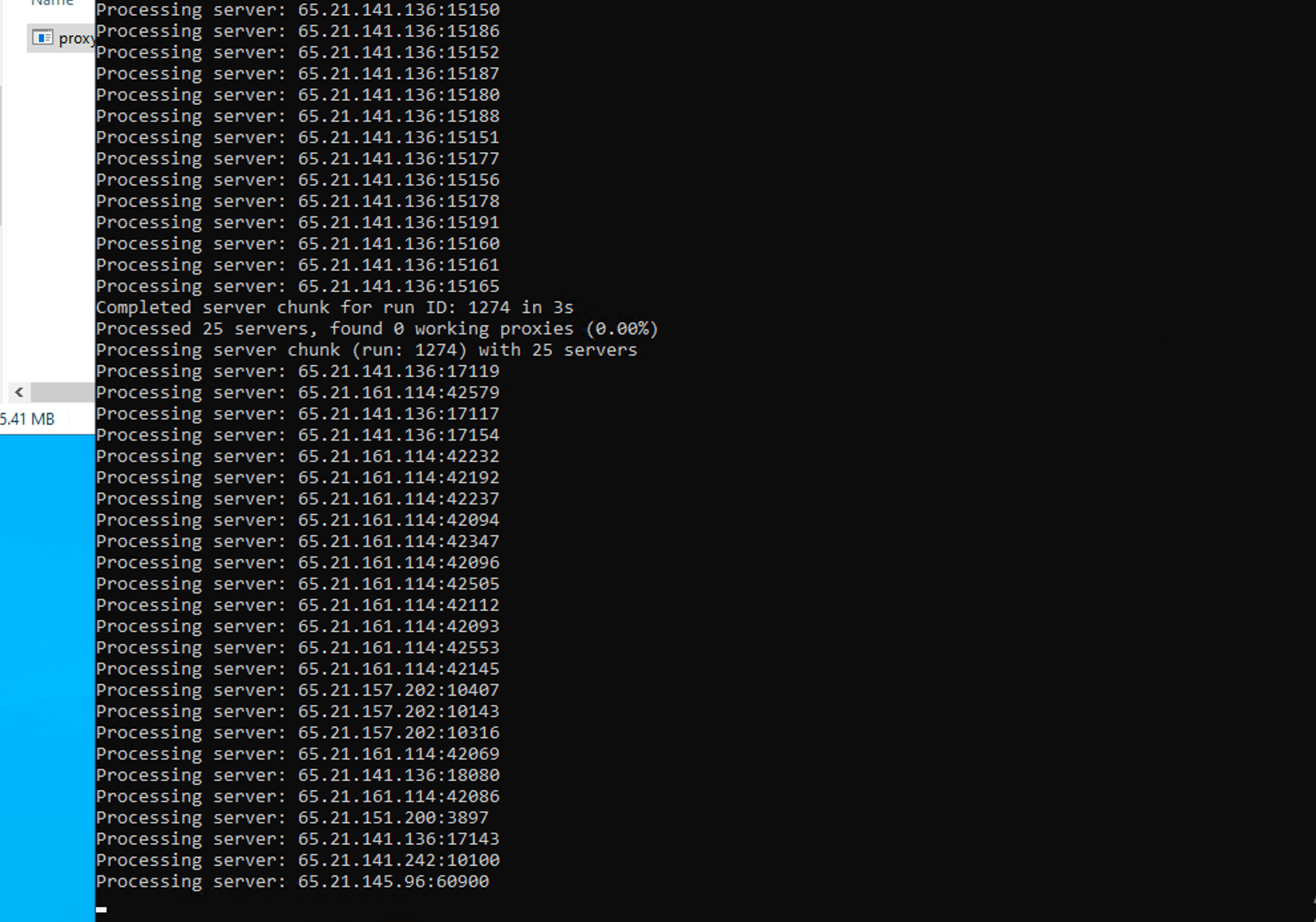
Applied Value of Proxylib.com: Who will benefit and for what purposes?
Based on the stated characteristics and methodology, Proxylib.com appears to be a highly useful tool for a wide range of users, especially those who are new to proxies or operating on a limited budget. Primarily, it will appeal to freelancers, SMM specialists, and small teams who occasionally need to change IP addresses to access various online services, perform web scraping, or bypass regional restrictions. The ability to quickly obtain a list of fresh, verified proxies without resorting to paid solutions significantly streamlines many routine tasks.
On the proxy list page, users don't just get a chaotic set of addresses, but a meticulously sorted and filterable data array. You can organize proxies by a multitude of critical parameters: anonymity level (Elite, Anonymous, Transparent), uptime, response time, and latency. This enables quickly finding the most suitable option for specific tasks, from high-speed web Browse to operations demanding maximum stealth.
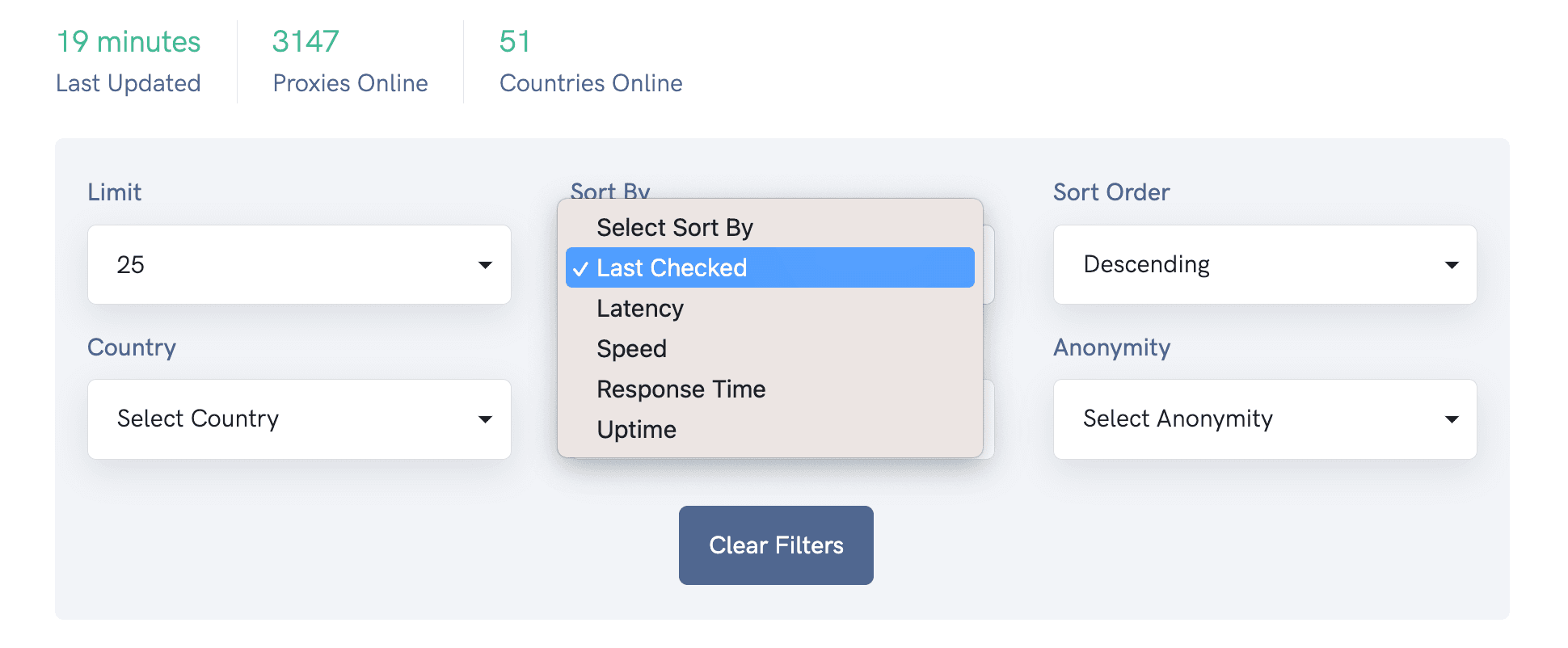
Furthermore, for geographically constrained tasks, the "Proxies by location" functionality offers exceptional flexibility. Here, you can select proxies exclusively from your country of interest, and within that country—even down to a specific city, which is a rarity for free services and significantly enhances the effectiveness of working with geo-targeted content or advertising campaigns.
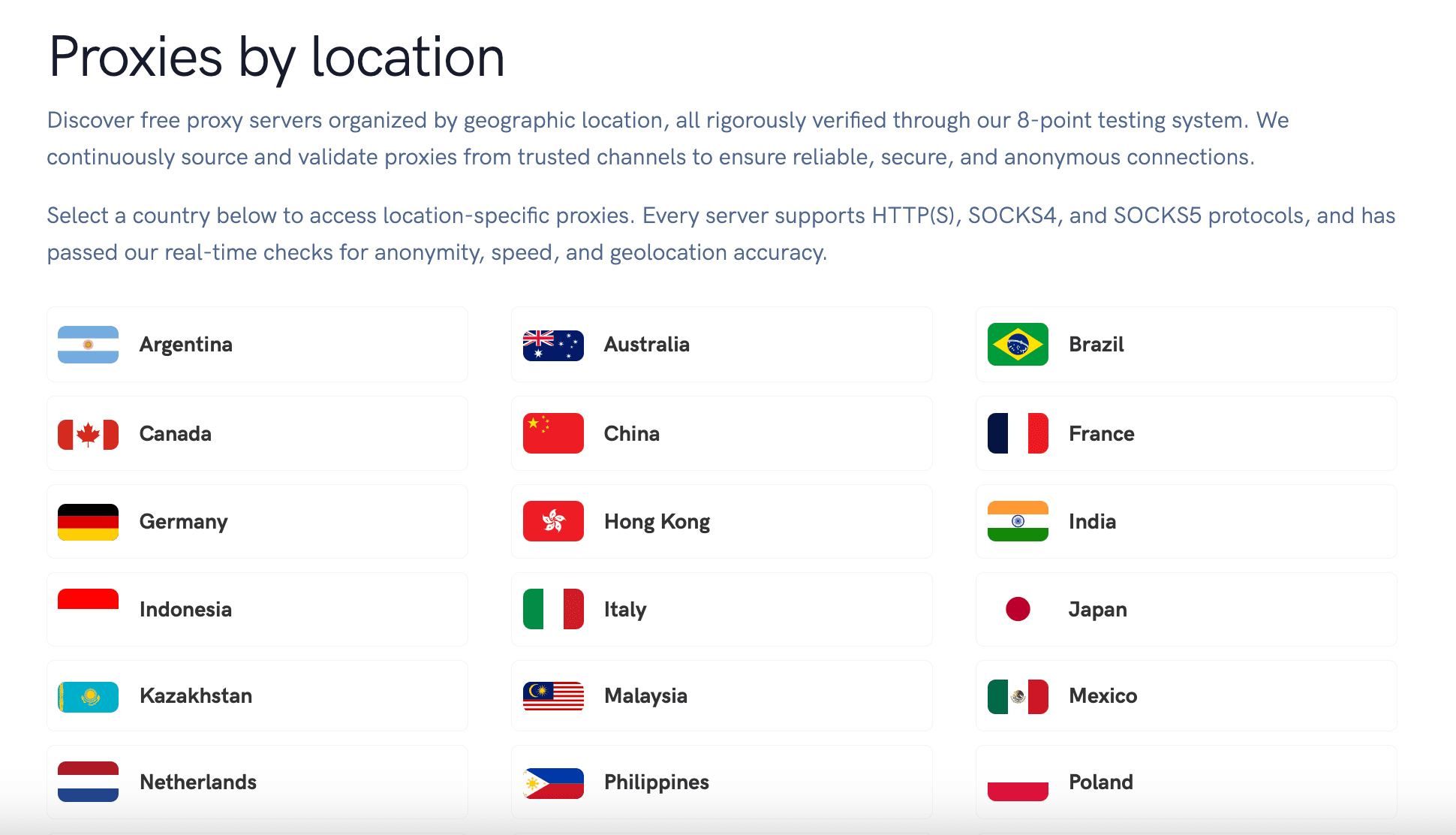
Users involved in SEO analysis or market research will also find Proxylib.com beneficial. The precise geolocation of proxies allows for obtaining search results or viewing content as if you were in a specific city or country. This provides a more objective picture of the market and competitive landscape. Of course, for large-scale and high-load tasks requiring maximum stability and IP exclusivity, paid solutions still remain the priority, but for many everyday needs, or as a testing ground, Proxylib.com offers a quite viable alternative.
In addition to its main proxy list, Proxylib.com also provides classic yet extremely useful tools such as a Proxy Checker and What is my IP. The former allows you to quickly verify a specific proxy server's functionality, type, and anonymity, which is particularly convenient if you're using proxies from third-party sources. The What is my IP function is a fundamental yet essential tool for anyone working with online anonymity; it instantly displays your current public IP address, allowing you to confirm that the proxy is working correctly and masking your real IP. The presence of these tools on a single resource makes it an even more comprehensive solution for those seeking verified free proxies and related services.
It's important to remember that even the best free service cannot guarantee 100% uptime or absolute uniqueness for every IP address, especially when dealing with public proxies. Nevertheless, Proxylib.com's stated frequency of checks and depth of analysis make it one of the most attractive offerings in the free proxy segment. It's not just a list; it's an attempt to systematize and verify publicly available resources, which in itself is a valuable contribution. For those willing to accept a small degree of manual sifting but wishing to significantly save costs, Proxylib.com appears to be a very worthy candidate for regular use.
FAQ
How reliable are free proxies from Proxylib.com for everyday tasks?
Free proxies from Proxylib.com demonstrate a high degree of reliability due to their rigorous verification methodology: each IP is tested every two hours against 8 parameters. This significantly enhances their usability compared to chaotic lists found online. For daily tasks, such as accessing geo-restricted content or non-intensive web scraping, they are quite suitable. However, for critical or high-load operations, it's always recommended to consider paid, more stable solutions.
What advantages does Proxylib.com offer compared to other free proxy websites?
Proxylib.com stands out due to its depth and frequency of verification. They check proxies against 8 parameters (including precise geolocation and honeypot detection) every 2 hours, unlike many competitors who might check every 6+ hours. They also offer a three-tier anonymity classification (Elite, Anonymous, Transparent), giving users greater control and understanding of the proxy they are using for their specific objectives. Recent enhancements in their checkers, such as proxy type specification and a scalable agent system, make their process even more efficient.
Can proxies from Proxylib.com be used for tasks requiring high anonymity, such as handling sensitive data?
For tasks demanding maximum anonymity and security, such as handling sensitive personal or corporate data, it's advisable to use Elite proxies from Proxylib.com in conjunction with other protective tools, like anti-detect browsers. However, it's crucial to remember that public free proxies, by their nature, always carry certain risks. For mission-critical tasks where data compromise is unacceptable, consider using private, paid proxies, which generally offer a much higher level of exclusivity and security.
 petro
petro
 Multi-Account Management
Multi-Account Management Prevent Account Association
Prevent Account Association Multi-Employee Management
Multi-Employee Management


